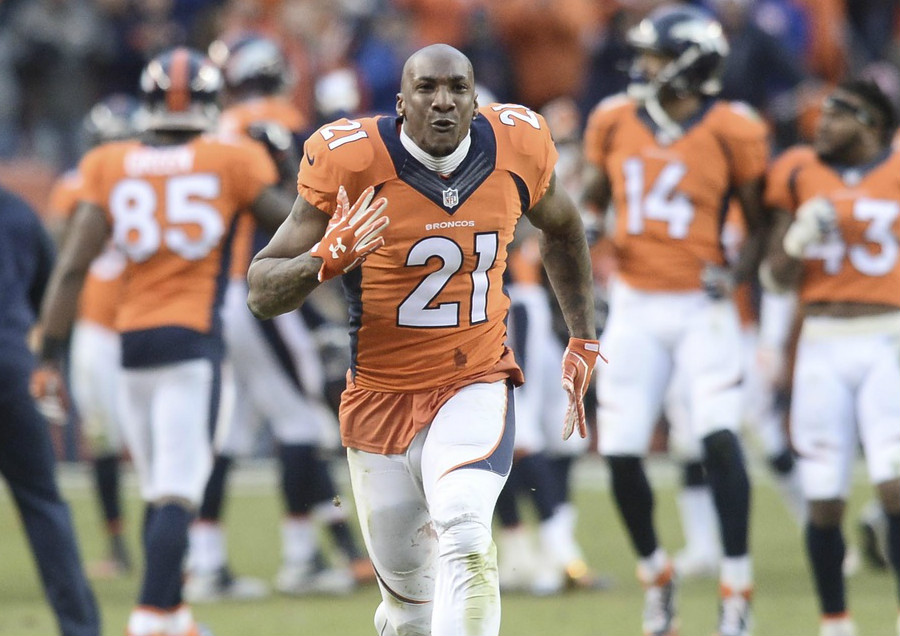On Wednesday, our own Casey Light wrote a great piece, breaking down where this Denver Broncos defense ranks historically. The conclusion: They’re great, but not nearly the best.
And he’s right; pound-for-pound, statistic-for-statistic, the ’85 Bears, the ’00 Ravens and the ’13 Seahawks may come out looking better than the ’15 Broncos, but maybe “best” isn’t the question we should be asking.
The question we should be asking is: Are the 2015 Denver Broncos the most-important defense in NFL history? And if that’s the question, then the answer is a resounding yes. In fact, the Denver defense may be the most-important unit, offense or defense, the league has ever seen.
And the case all starts with this stat: 14 of the Denver Broncos’ 19 games were decided by seven points or less, and they went an eye-popping 11-3 in those games, an NFL record.
Of the three other defenses in question, only the ’13 Seahawks (6-3) came close to reaching double digit games decided by a touchdown or less; the ’00 Ravens (4-2) and ’85 Bears (2-0) were quite used to a comfortable lead.
Why is that? Because they had offenses that carried at least some portion of the load, if not a good deal of it.
That was not the case with the Broncos, who only had one victory all season by more than two scores; the Bears (12), the Ravens (8) and Seahawks (8), though, spent the majority of their season blowing opponents out. In fact, in their Super Bowl appearances, both the Bears and Seahawks scored 40-plus points, and the Ravens put up 34.
It may sound odd to say, but none of those three teams needed an all-time great defense; really, they just needed a good-to-great defense, because they all had competent offenses backing them up — top-10 offenses in the cases of Chicago and Seattle.
Not only did the Broncos not have a competent offense; they had an offense that consistently put the defense in losing situations (stats courtesy of Football Outsiders).
Denver’s offense went three-and-out on .276 percent of their drives (30th in the NFL), they threw an interception on .120 percent of their drives (31st in the NFL) and took an average time of 2:32 off the clock; all of that led to the Denver defense being tasked with stopping 195 drives (most in the NFL) with an average starting position of the Broncos’ 29.5-yard line (29th in the NFL).
And despite all those odds being stacked against them, the Denver defense still gave up the least amount of points per drive in the league (1.43).
Neither the Seahawks (5th fewest turnovers/drive; 16th fewest 3-and-outs/drive; 6th best opponent’s starting field position) nor the Ravens (8th fewest turnovers/drive; 9th fewest 3-and-outs/drive; 2nd best opponent’s starting field position) were tasked with overcoming such incompetent offensive performances, and while FO’s stats only go back as far as 1997, the fact that the Bears offense was second best in the NFL should give you some idea of how much help was given to their defense.
And while I think it’s a bit unfair to bring strength of schedule into the equation — you can only play the teams lined up in front of you — it’s worth looking at.
According to FO, the average DVOA of the Broncos’ opponents was 4.1 (8th most-difficult in the league), while the Seahawks’ opponents came in at 0.4 (16th most-difficult), and the Ravens’ opponents came in at -4.8 (24th most-difficult). That’s the difference between facing the Vikings, Raiders or Texans for 16 games, respectively.
The Bears, again, came before FO’s time, so we can’t compare apples to apples, but it is fair to note that they only played five playoff teams during the regular season, while the Broncos faced seven.
All this is to say that no defense has had a bigger impact on a championship than this Denver Broncos group. Sure, pound for pound, you could make the argument that other units have been better, but none have meant more.
Whether that makes them the best defense in NFL history, I can’t say for sure; it’s all subjective, anyway. What I can say, though, is that they are absolutely the most important.
